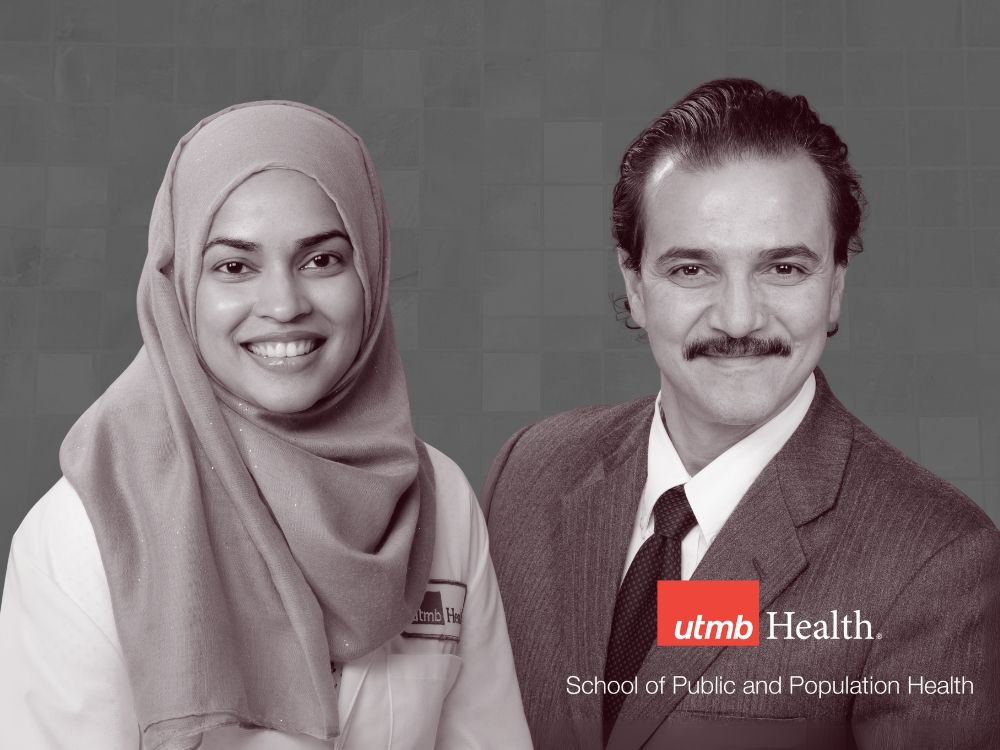A recent publication in BMC Medical Education highlights a groundbreaking curriculum initiative led by UTMB faculty members Dr. Sarah Siddiqui and Dr. Hani Serag, who have successfully implemented a Health Systems Science and Community Service (HSS) course for fourth-year medical students at the John Sealy School of Medicine.
"In this article, we show the practical application of curricular implementation focusing on a health systems science course aligned with community service using an iterative approach," explains Dr. Siddiqui, who serves as Assistant Professor, Program Director for MD/MPH, and Co-Director of HSS at UTMB.
The course, which began in June 2020, provides medical students with a comprehensive understanding of factors that impact patient care while building skills that enable them to become physicians who meaningfully improve the health of patients and populations.
Student-Centered Curriculum Development
What makes this educational approach particularly effective is its responsiveness to student feedback. The team systematically collected feedback throughout four iterations of the course, making thoughtful adjustments to ensure relevance and effectiveness.
"The study underscored the critical importance of adopting an adaptive, feedback-driven approach to curriculum development," notes Dr. Serag, Director of the Division of Global Partnership and assistant professor at the Department of Population Health and Health Disparities at SPPH. "By systematically incorporating student feedback into the ongoing, periodic review and refinement of course content, educators can ensure that instructional materials remain relevant, responsive, and aligned with learners' evolving needs and experiences."
Preparing Students for Real-World Challenges
A key component of the HSS course is the integration of community service and service-learning experiences. This includes the "Hospital to Home (H2H)" program developed by the UTMB Office of Community Engagement and Education in collaboration with St. Vincent's House. This is a student-led experience aimed at connecting hospitalized patients at high risk for unmet social and medical needs including those who are uninsured and underinsured with the appropriate resources.
"Part of the challenges to implementing and reviving curriculum is going through growing pains," Dr. Siddiqui acknowledges. "While all of us including students understand the importance of integrating health systems science and gaining such skill sets to care for patients and communities in a more holistic manner, at times there are competing priorities like studying for medical board exams."
Despite these challenges, the publication reports positive outcomes, with student performance on the National Board of Medical Examiners HSS exam comparable to national performance.
Looking Forward: Implications for Health Education
Dr. Serag emphasizes that the findings "provide compelling evidence that active learning methodologies can be successfully implemented across diverse academic disciplines and learning environments within the institution."
For Dr. Siddiqui, the implications extend beyond the classroom: "We need more research on and support for innovative approaches in training our learners including making the curricular changes needed in medicine, health professions and public health so that our future healthcare and public health professionals focus on prevention at all levels of health in the context of serving populations here at home and abroad."
Dr. Neil Mehta, Associate Dean for Research at SPPH, sees the work as aligning perfectly with the school's mission. "This pioneering work by Drs. Siddiqui and Serag exemplifies our commitment at SPPH to evidence-based educational innovation. By integrating health systems science with community engagement and utilizing student feedback to drive continuous improvement, we're helping shape healthcare professionals who understand both the systemic factors affecting health outcomes and their role in addressing them."
The HSS course and its iterative development model exemplify UTMB SPPH's commitment to preparing well-rounded practitioners equipped to address the complex factors driving public health challenges in the communities they will serve.
Find the full publication “Lessons learned from implementing health systems science and community service course for fourth-year medical students” in BMC Medical Education.
Have news or an event to share? Email SPPHmarketing@utmb.edu with your story ideas.
